After the Eucharist, the work of the second day was presented by Sr Nicla Spezzati (asc), animator of the Chapter. Sr Nicla introduced Prof. Giuseppe CURSIO, pedagogist and expert in the “Freedom Writers” educational methodology.
She introduced the dynamics with an introduction reminding the assembled sisters that:
A General Chapter is a meeting of sisters, of women who share the same charism, the same passion, who welcome each other, who look into each other’s eyes, even if there are differences, their hearts beat in unison!
The General Chapter is the place where we live in a common house with an eye to the world.
We are all human beings, we share existence, marked by beautiful things but also by painful experiences.
He then continued his reflection by taking the image of the tablecloth inspired by a novel by Victor Hugo, Les Misérables.
Imagine a beautiful tablecloth on the altar,” Victor Hugo tells us, “it’s time to tear up the tablecloth. Then leave half of the torn tablecloth on the altar and take the other half to heal the wounds of the human being.
Tearing the tablecloth off the altar is not an obscene gesture, it is a sacred gesture.
With this image, I share with you the needs that accompany our lives:
– What makes us human?
– What does a full life mean?
– What does it mean to give a life?
– What ignites a life?
All of us are not one. We, in our singularity, are two. In each of us there is another: mom, dad, they gave us a name and that name expressed the expectation that mom and dad had on you.
We have this name written on our foreheads.
We can only see our name if we put ourselves in front of a mirror, or if we put ourselves in the condition to let the other look at us. The other sees parts of me that I do not know. That is why we are not one, but we are two. We need another to look at us in front of us. An example in this sense is already our name, that is, who we are, what our desires are, what our expectations are.
The one, the island dies.
When, at some point, human beings want to build the Tower of Babel, their intent is to make a community one language, one point of view, one truth, one value. The writer says that, at some point, God confuses languages because the confusion of languages is life, it is creativity, it is your subjective singularity.
No one in the world, dear sisters, writes as you are writing right now. And no one is looking as you are looking right now. There is a singularity that hides the rivulets of your talents, the rivulets of your feminine being i.e. our being generative, i.e. full of spirit.
After the reflection, there was a moment of group dynamics with sharing for a better mutual understanding among the chapter members.





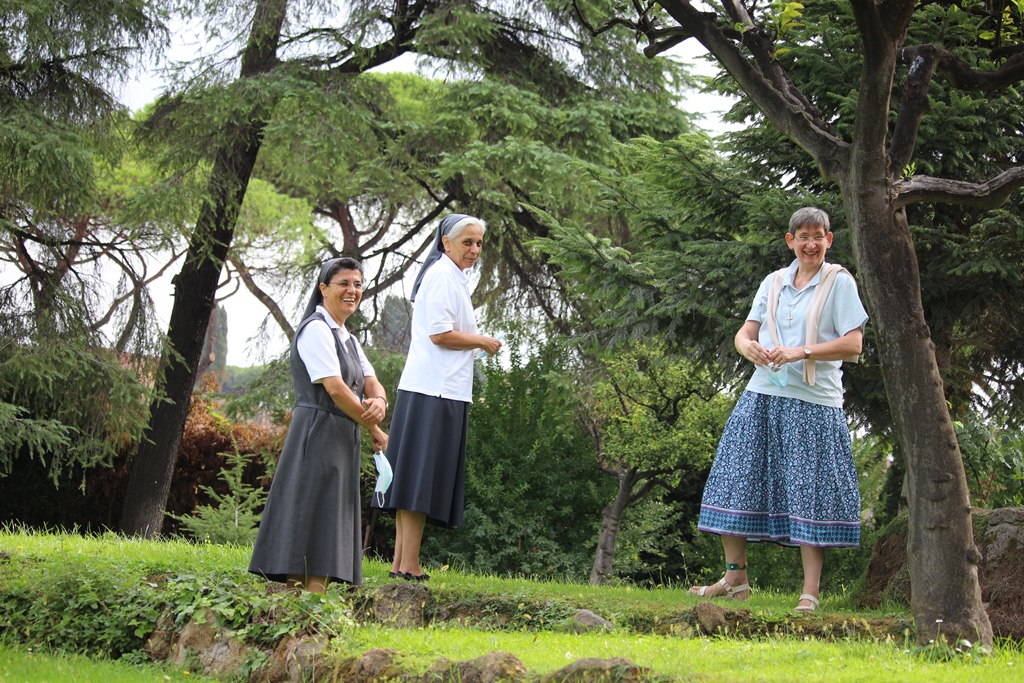
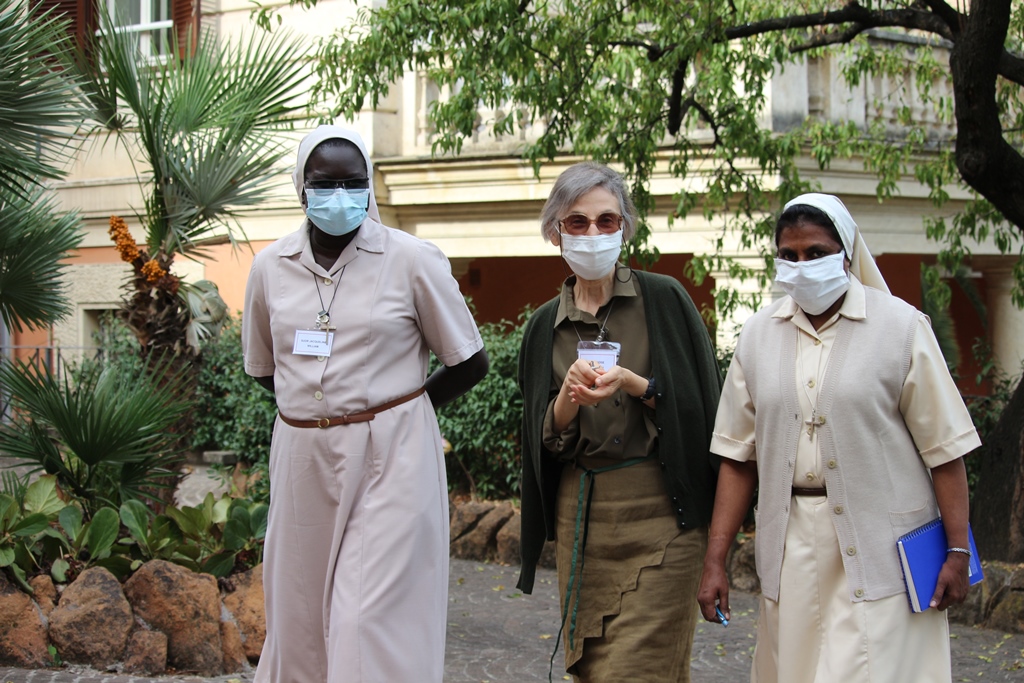



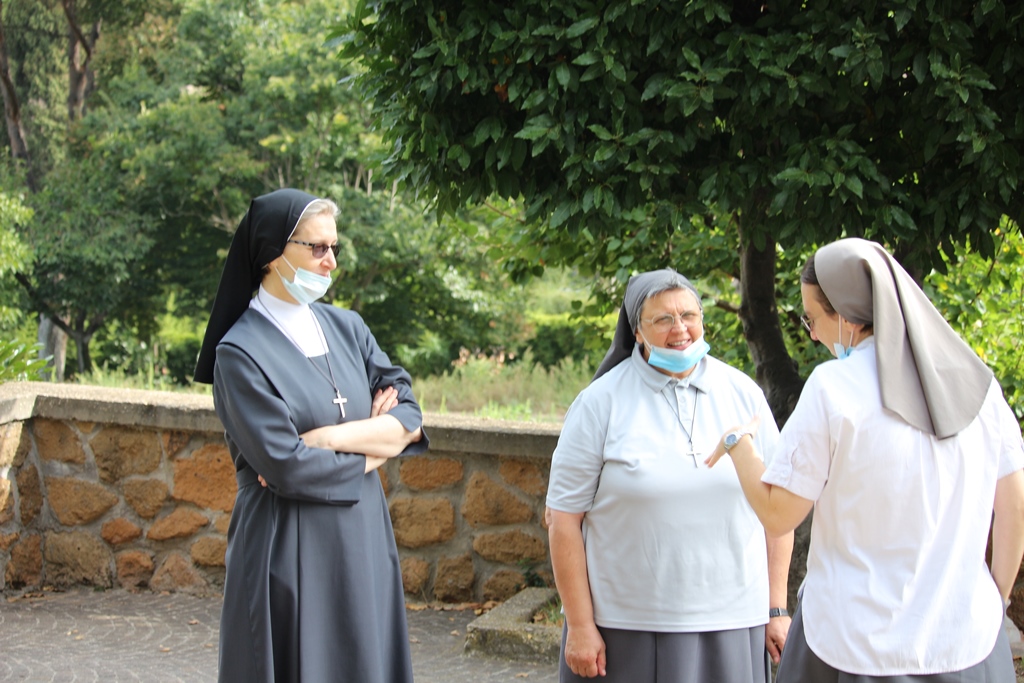




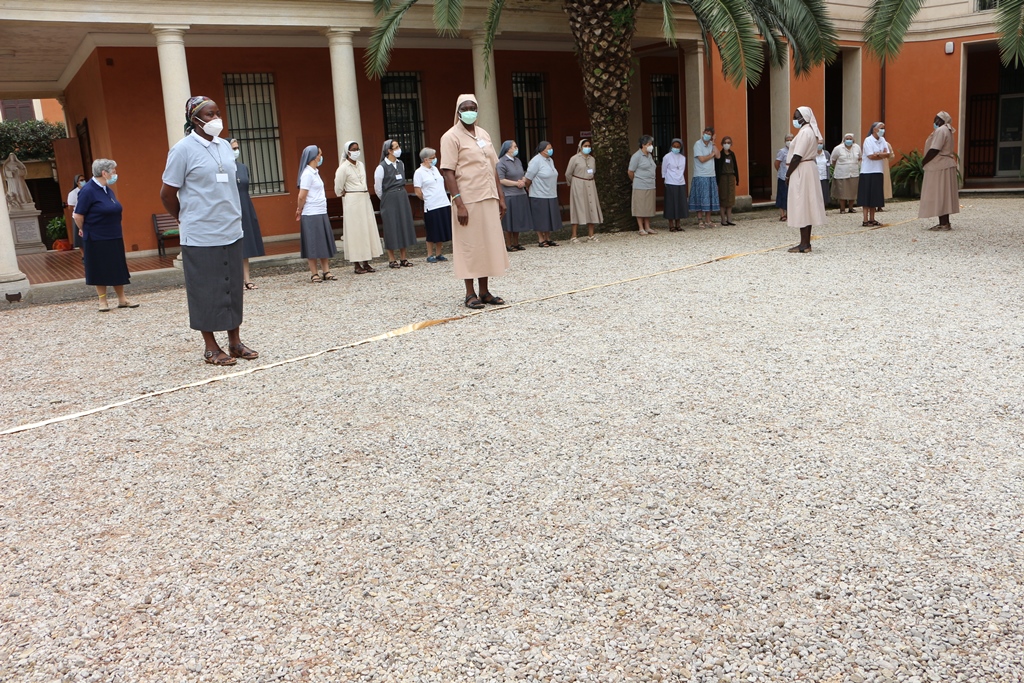

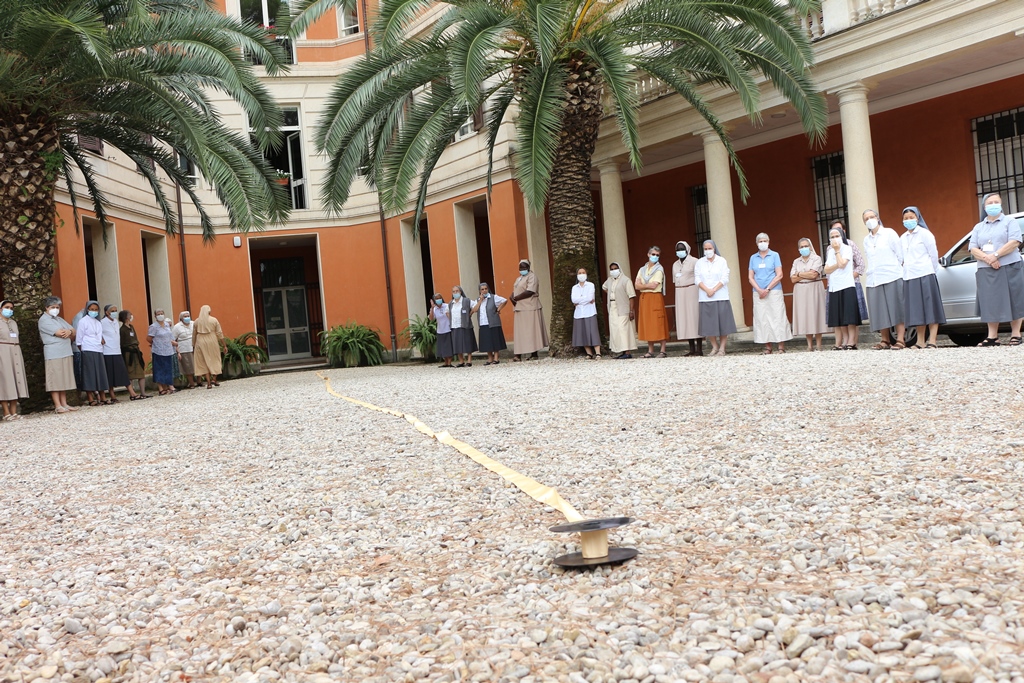
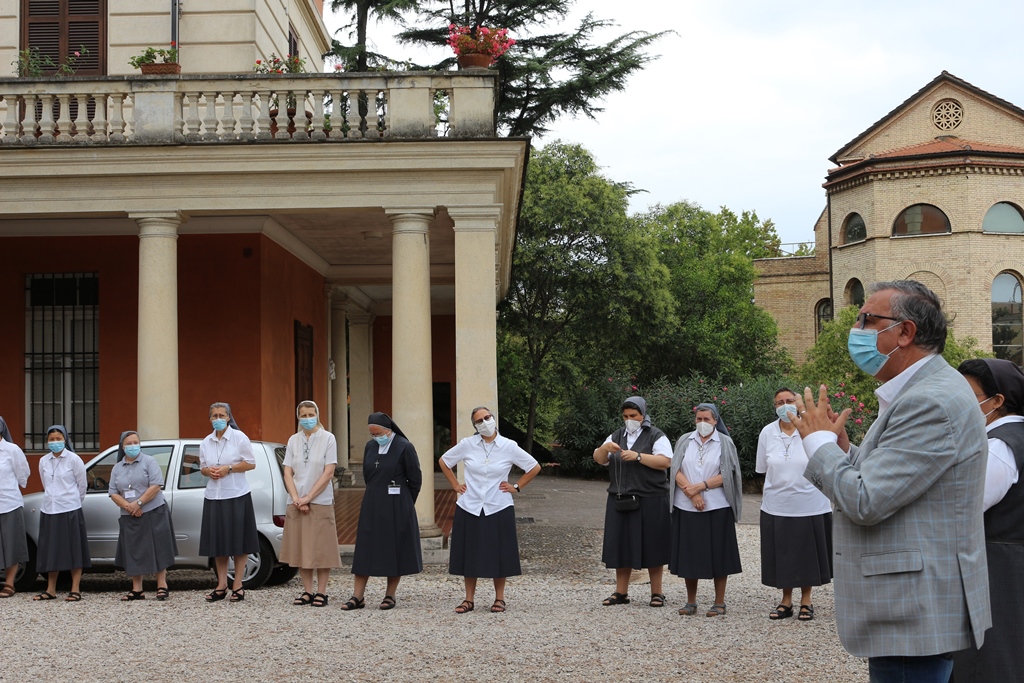


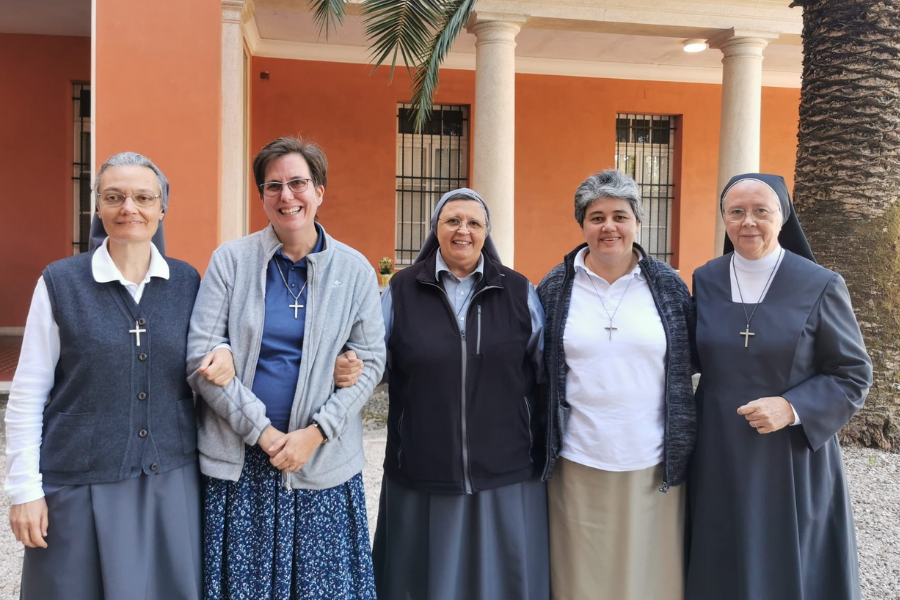

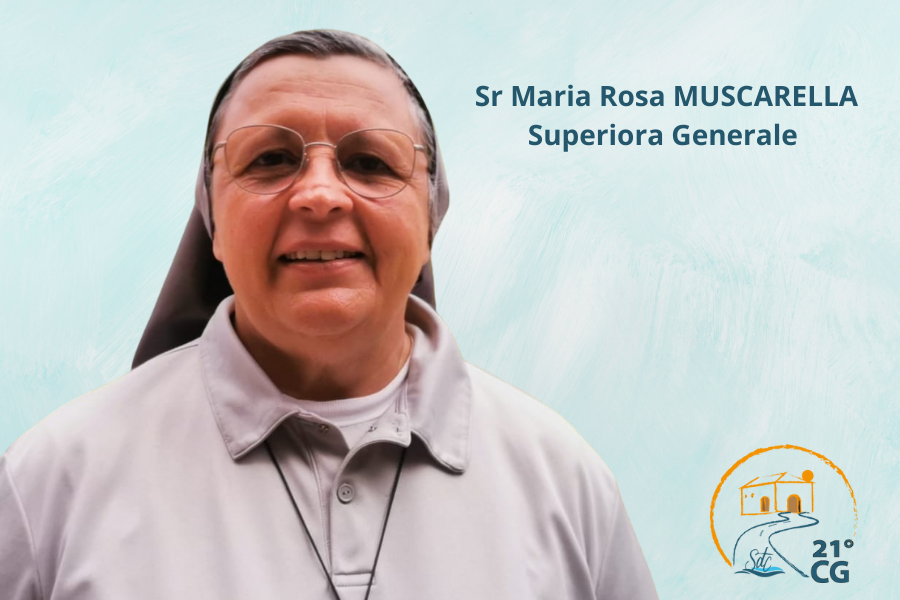


Leave A Comment